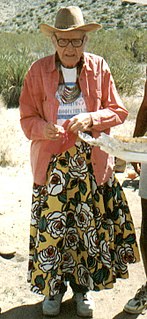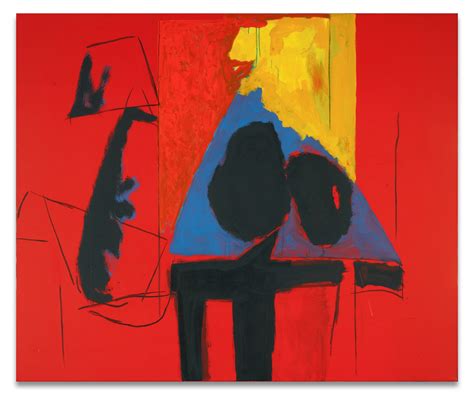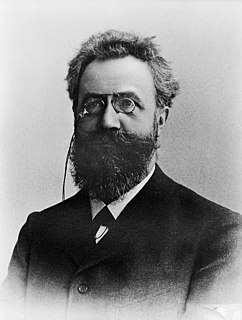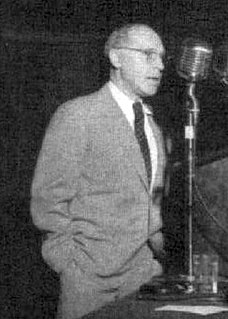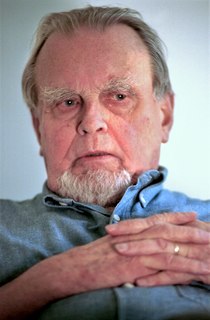A Quote by John Berger
When a painter is working he is aware of the means which are available to him - these include his materials, the style he inherits, the conventions he must obey, his prescribed or freely chosen subject matter - as constituting both an opportunity and a restraint.
Related Quotes
In order to live, man must act; in order to act, he must make choices; in order to make choices, he must define a code of values; in order to define a code of values, he must know what he is and where he is – i.e. he must know his own nature (including his means of knowledge) and the nature of the universe in which he acts – i.e. he needs metaphysics, epistemology, ethics, which means: philosophy. He cannot escape from this need; his only alternative is whether the philosophy guiding him is to be chosen by his mind or by chance.
The master in the art of living makes little distinction between his work and his play, his labor and his leisure, his mind and his body, his information and his recreation, his love and his religion. He hardly knows which is which. He simply pursues his vision of excellence at whatever he does, leaving others to decide whether he is working or playing. To him he's always doing both.
Confronted with the loving-sharing Consensus of subject-SUBJECT relationships all Authoritarianism must vanish. The Fairy Family Circle, co-joined in the shared vision of non-possessive love - which is the granting to any other and all others that total space wherein each may grow and soar to his own freely-selected, full potential - reaching out to one another subject-to-SUBJECT, becomes for the first time in history the true working model of a Sharing Consensus!
The world is God's workshop; the raw materials are His; the ideals and patterns are His; our hands are "the members of Christ," our reward His recognition. Blacksmith or banker, draughtsman or doctor, painter or preacher, servant or statesman, must work as unto the Lord, not merely making a living, but devoting a life. This makes life sacramental, turning its water into wine. This is twice blessed, blessing both the worker and the work.
A perfect historian must possess an imagination sufficiently powerful to make his narrative affecting and picturesque; yet he must control it so absolutely as to content himself with the materials which he finds, and to refrain from supplying deficiencies by additions of his own. He must be a profound and ingenious reasoner; yet he must possess sufficient self-command to abstain from casting his facts in the mould of his hypothesis.
Good work is no done by "humble" men. It is one of the first duties of a professor, for example, in any subject, to exaggerate a little both the importance of his subject and his own importance in it. A man who is always asking "Is what I do worth while?" and "Am I the right person to do it?" will always be ineffective himself and a discouragement to others. He must shut his eyes a little and think a little more of his subject and himself than they deserve. This is not too difficult: it is harder not to make his subject and himself ridiculous by shutting his eyes too tightly.
As science is more and more subject to grave misuse as well as to use for human benefit it has also become the scientist's responsibility to become aware of the social relations and applications of his subject, and to exert his influence in such a direction as will result in the best applications of the findings in his own and related fields. Thus he must help in educating the public, in the broad sense, and this means first educating himself, not only in science but in regard to the great issues confronting mankind today.
Instead of encouraging the student to devote himself to his studies for the sake of studying, instead of encouraging in him a real love for his subject and for inquiry, he is encouraged to study for the sake of his personal career; he is led to acquire only such knowledge as is serviceable in getting him over the hurdles which he must clear for the sake of his advancement.
It is not possible to engage in the direct apostolate without being a soul of prayer. We must be aware of oneness with Christ, as he was aware of oneness with his Father. Our activity is truly apostolic only insofar as we permit him to work in us and through us with his power, with his desire, with his love.




